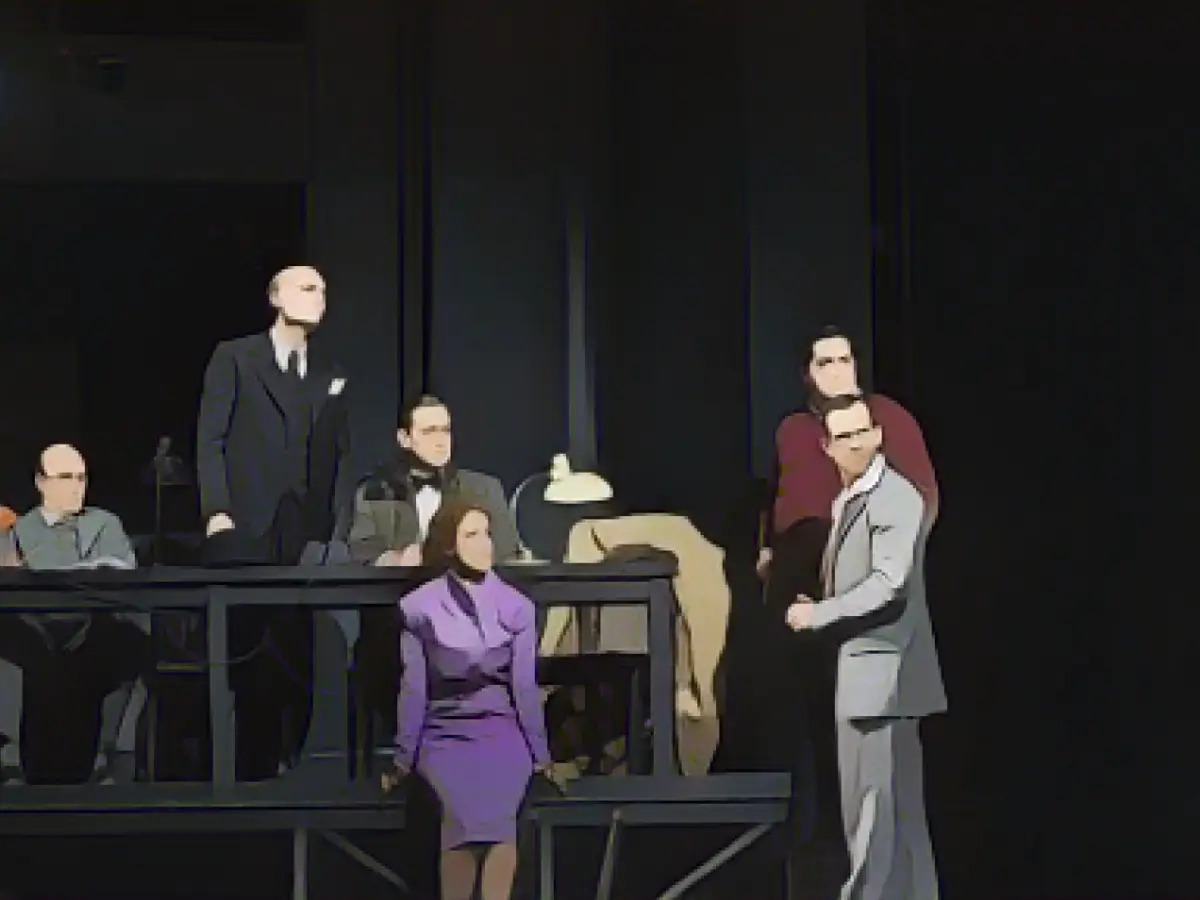Engaging with its own history, the Volksoper Wien delved into the uncharted territory with an innovative operetta titled "Let's forget the world." This unique production aimed to wrestle with the theater's Nazi past and honor the artists, predominantly of Jewish origin, who were expelled or tragically lost due to these circumstances.
The Dutch director Theu Boermans crafted this thought-provoking piece centered around the last operetta staged at Volksoper prior to the Anschluss—the merging of Austria and Nazi Germany. This operetta titled "Gruß und Kuss aus der Wachau," was composed by the maestro Jara Benes. Boermans invited the audience to bear witness to the rehearsals for this lighthearted marriage and love story, capturing the various reactions among the Volksoper artists in the face of National Socialism, spanning everything from fervor and allegiance to solidarity with their persecuted colleagues.
Israeli-born composer and conductor Keren Kagarlitsky devised musical contrasts for the new production, "Lass uns die Welt vergessen," by harmonizing the partly jazzy melodies from Jara Benes's original work with her own compositions, as well as those by Schönberg and Mahler. This amalgamation beautifully symbolized the fraught contrast between the carefree operetta world and the ominous Nazi era's darkness. The tension was further heightened by using footage of Hitler's invasion of Vienna and concentration camps, serving as a somber reminder of the horrors unfolding outside the operetta's serene confines.
The captivating operetta genre resonates somewhat for today's audience, grappling with major topics such as war, pandemics, and environmental crises. Volksoper director Lotte de Beer shared her sentiments, remarking, "It's therapeutic to laugh together about the impossible that's happening outside." Her comments echoed a sense of cathartic release for the audience members.
The audience was deeply moved by the payload of emotions as they witnessed the plights of these persecuted artists, played by their contemporaries. Descendants of expelled artists also attended the performance, with notable attendee Robert Adler, opera manager from Germany, expressing a mix of awe and sorrow after the performance. "It's magnificently done—and harrowing," he stated.
Among the expelled artists was Kurt Herbert Adler, who managed to escape to the United States, where he went on to manage the San Francisco Opera for decades. Conversely, Fritz Löhner-Beda, a librettist for "Gruß und Kuss aus der Wachau," was sent to the concentration camp of Buchenwald. His poignant legacy includes being recognized as the librettist for the Lehar operetta "Land of Smiles" and penning the "Buchenwald Song," a heartrending composition penned during his time in the Buchenwald concentration camp, where he ultimately perished in 1942.
This groundbreaking operetta production left an indelible mark on the audience, serving as a poignant reminder of the injustices faced by the artists during that time. It served as both a platform for confronting the past and honoring the victims who paid the ultimate price for their undying love of the arts.
Sidenote: Although the Volksoper Wien's operetta "Let us forget the world" is not explicitly linked to the theater's Nazi past or its Jewish artists, it is noteworthy that the Volksoper Wien has continued to address historic themes relevant to Austria's past and cultural heritage. The premier of "KaiserRequiem" on January 25, 2025, is a prime example of this, as it intertwines Viktor Ullmann’s "Der Kaiser von Atlantis" and Mozart's "Requiem" in an ambitious collaborative production that grapples with totalitarian power and human suffering. This production highlights the artistic legacy of Viktor Ullmann, who created "Der Kaiser von Atlantis" in the Theresienstadt concentration camp, and Mozart's "Requiem," which remains a potent symbol of human suffering and hope.
Sources:***








